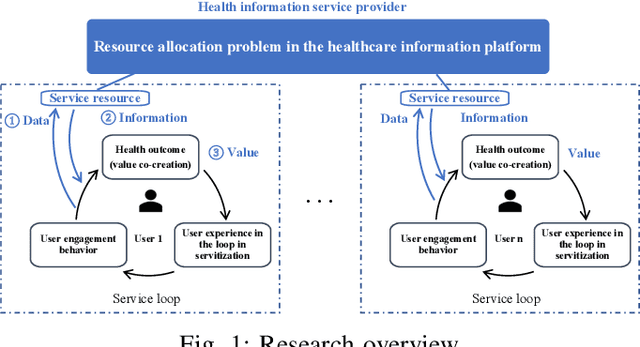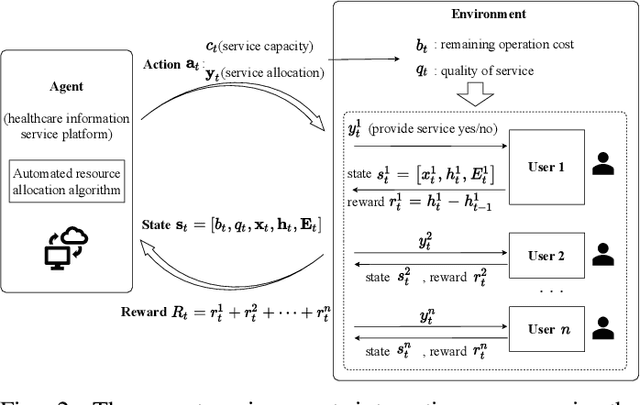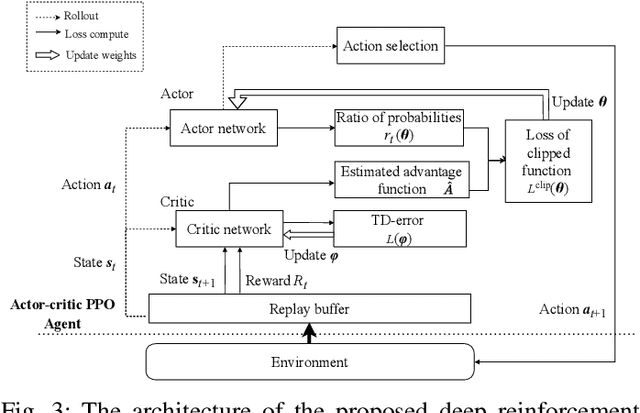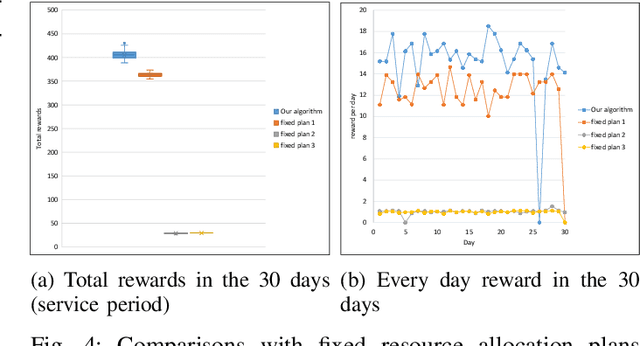Service resource allocation problem in the IoT driven personalized healthcare information platform
Paper and Code
Apr 05, 2022



With real-time monitoring of the personalized healthcare condition, the IoT wearables collect the health data and transfer it to the healthcare information platform. The platform processes the data into healthcare recommendations and then delivers them to the users. The IoT structures in the personalized healthcare information service allows the users to engage in the loop in servitization more convenient in the COVID-19 pandemic. However, the uncertainty of the engagement behavior among the individual may result in inefficient of the service resource allocation. This paper seeks an efficient way to allocate the service resource by controlling the service capacity and pushing the service to the active users automatically. In this study, we propose a deep reinforcement learning method to solve the service resource allocation problem based on the proximal policy optimization (PPO) algorithm. Experimental results using the real world (open source) sport dataset reveal that our proposed proximal policy optimization adapts well to the users' changing behavior and with improved performance over fixed service resource policies.
 Add to Chrome
Add to Chrome Add to Firefox
Add to Firefox Add to Edge
Add to Edge